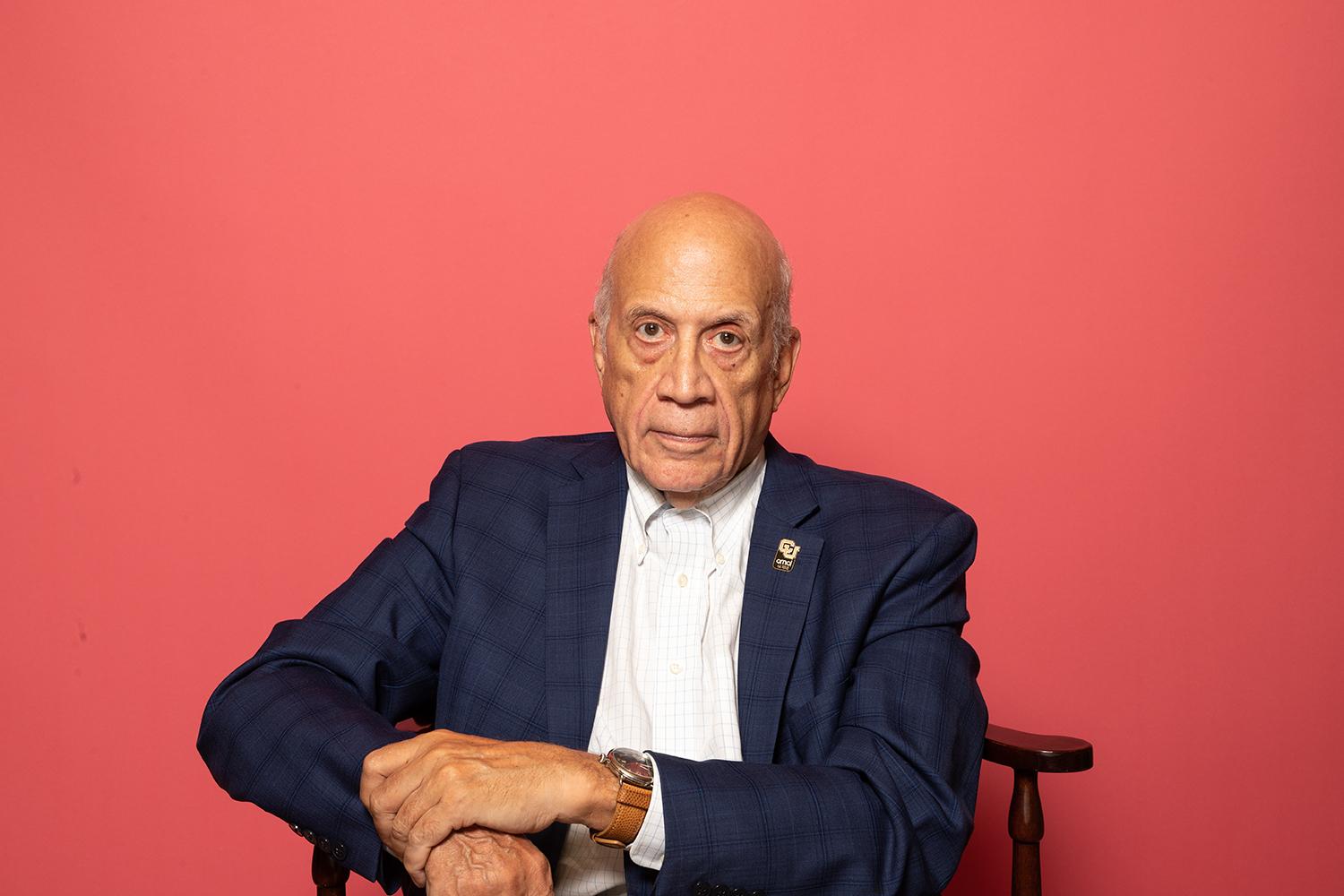
An American Reckoning on Race

[soundcloud width="100%" height="300" scrolling="no" frameborder="no" allow="autoplay" src="https://w.soundcloud.com/player/?url=https%3A//api.soundcloud.com/tracks/898411528%3Fsecret_token%3Ds-kthfCABI1fM&color=%23ff5500&auto_play=false&hide_related=false&show_comments=true&show_user=true&show_reposts=false&show_teaser=true&visual=true"][/soundcloud]
My parents moved to Denver in 1940 from Kansas thinking it was a good city to raise a family — despite the Ku Klux Klan presence exemplified by five-term Denver mayor Ben Stapleton, a member of this white supremacy group. Growing up in the 1950s and 1960s, Denver’s Black community was segregated in Five Points. Racism was less intense than in St. Louis or Kansas City, but it always lurked around the corner.
Having been quarantined at home in Los Angeles since March 11 due to the COVID-19 pandemic, I have had ample time to think about growing up in Denver and going to college at CU. The murder of George Floyd, which set off a massive protest movement in this nation and abroad, took me back to Aug. 11, 1965.
Approaching my senior year at CU, I was completing my third summer working as a mailman. I was walking along Stout Street to hop a bus home to Northeast Denver when a white newspaper vendor running toward me shouted, “This is the United States of America! This can’t be happening here!” The newspaper headline was about the rioting in Watts, a Black neighborhood in Los Angeles. “The Negroes are rioting” blared headlines across America. From 1965 to 2020 the story remains the same.
In quarantine, I’ve realized in addition to a COVID-19 virus vaccine, we desperately need a vaccine for the virus of racism, COVID-1619. Africans were brought in shackles to Jamestown, Virginia, in 1619 and racism and white supremacy have guided the country’s evolution since then.
I’ve realized in addition to a COVID-19 virus vaccine, we desperately need a vaccine for the virus of racism, COVID-1619.
Along with racial protests there are energetic calls from across the business world and many communities to support Black business. But supporting Black businesses today is not enough. It’s time that the country, the business world and yes, universities, right the wrongs of the past with reparations.
Japanese Americans received reparations after WWII to acknowledge the harm done when the U.S. government confined them to internment camps and forcibly took their homes and businesses. In 1988, 40 years after the camps closed, President Reagan signed the Civil Liberties Act offering a formal apology and $20,000 to each Japanese American survivor.
According to a recently commissioned reparations case analysis by BET founder Robert Johnson, America's first Black billionaire, each of the 40 million African Americans in the U.S. are owed $350,000, for a total of $14 trillion.
In addition to reparations from the federal government, if universities that benefited from slavery, including Yale, Harvard, Princeton, UVA, Georgetown and Wake Forest, allocated 1% of their 2019 endowment funds for reparations purposes, $1.05 billion would be available — annually — as a higher education reparations fund. Similarly, corporations like the 334-year-old Lloyd’s of London that benefited from the Atlantic slave trade could devote 1% of their annual market capitalization to create corporate reparations funds.
In 1991, video cameras captured white police officers beating Rodney King. In 2020, iPhones captured George Floyd’s murder by a white police officer. We have advanced in technology, but not in terms of addressing racial violence and police brutality aimed at Black Americans. To this end, just as we witness radical changes in the world of technology, let’s challenge ourselves to take radical steps in order to eliminate racism and white supremacy in American society.
As Dr. Martin Luther King Jr. stated at the 1963 March on Washington, “I look forward to the day when my children will be judged by the content of their character, not by the color of their skin.” What a revolutionary idea whose time has finally come. The three R’s: racism, redemption and reparations, define this American reckoning on race.
Philip S. Hart (Soc’66) is a member of CU’s Distinguished Alumni Gallery, civic leader, educator and award-winning author and documentarian who is a leading authority on the history of Black aviators. He and his wife Tanya created the PBS documentary Dark Passages: The Story of the Atlantic Slave Trade, which tells the story of the Atlantic slave trade in addition to numerous books and films that examine Black history.
Photos by Arnold Turner

